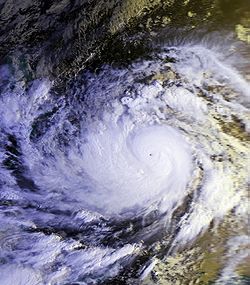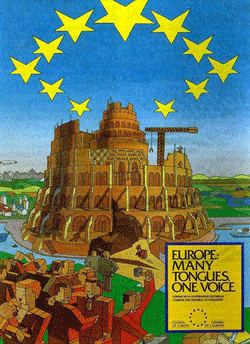EU Trying to Expand Global Reach
Thursday, May 14th, 2009
The EU is trying to be more influential:
EU seeks to extend global reach
The choices made by voters in next month’s European Parliament elections will have an influence – albeit indirect – on EU foreign policy. European affairs analyst William Horsley examines how MEPs now have a bigger voice on the global stage.
Today opinion polls show that most people across Europe think decisions on foreign policy should be taken jointly within the European Union, rather than by national governments alone.
In 1999 European leaders were spurred into action by the shame of having to rely on superior US military power to defeat the Serbian armed forces and stop the ethnic cleansing of Albanians in Kosovo, in Europe’s own backyard.
They agreed to beef up the EU’s Common Foreign and Security Policy with extra security and defence ambitions. They said that Europe must have “the capacity for autonomous action, backed up by credible military forces” for crisis management and even for peace-making.
In practice the daily coordination of policies among officials or ministers of the EU member states means that Brussels, rather than the various national capitals, is Europe’s centre of decision-making on most cross-border and international issues. These range from combating terrorism to energy security.
‘Pooled sovereignty’
Yet Europe’s experiment in “pooling sovereignty” among 27 countries is poorly understood by EU citizens…
Global role
Javier Solana is the EU’s veteran High Representative for Foreign Policy. Members of his team talk confidently of the EU as an indispensible power, whose crisis management is needed to deal with the world’s big conflicts and disputes, wherever they occur.
It is a bold claim. But the Council of the EU, which brings together ministers from the 27 member states, already acts like a fledgling European foreign ministry. It coordinates policy on a host of international issues. From their headquarters in a landmark pink granite building in Brussels, Council officials list some recent EU achievements:
• Resolving the war between Russia and Georgia last August.
- Taking the lead for the international community in dealing with Iran to contain its nuclear ambitions.
- Playing a key part in drawing up and funding the “roadmap” for Middle East peace based on a two-state solution for Israel and a Palestinian state.
- Deploying more than 20 missions worldwide in response to crises, from Kosovo to a new naval mission to deter piracy off the Somali coast.
Yet the EU also has severe critics, inside Europe and beyond, for whom its actions on the world stage are timid, confused or misguided. They say:
- That the EU is a paper tiger which has allowed Russia to claim a “sphere of privileged interest” throughout the former Soviet space. Europe’s internal divisions and its energy dependence on Russia encouraged Moscow to impose its will by force in the dispute with Georgia over breakaway South Ossetia and Abkhazia. Now other countries in the region also live in fear.
- In Afghanistan the Europeans, with some exceptions, have been risk-averse, sending too few combat troops to help America win a vital battle against global terrorism.
- The EU has been too obsessed with building structures for itself that duplicate those of Nato, but has failed to show the “beef” by adding to Europe’s real military capabilities. Thursday, 14 May 2009 by William Horsley http://news.bbc.co.uk/2/hi/europe/8049686.stm
The EU is still not ready to dominate the world scene, but biblical and other prophecies show that this is what is expected. It is developing certain capabilities (Galileo and the Large Hadron Collider) that may ultimately cause the world to be in awe of its military capabilities (Revelation 13:3-10) next decade.
For more information about that, please see the following three articles:
Europa, the Beast, and Revelation Where did Europe get its name? What might Europe have to do with the Book of Revelation? What about “the Beast”? What is ahead for Europe?
Who is the King of the North? Is there one? Do biblical and Roman Catholic prophecies point to the same leader? Should he be followed? Who will be the King of the North discussed in Daniel 11? Is a nuclear attack prophesied to happen to the English-speaking peoples of the United States, Great Britain, Canada, Australia, and New Zealand? When do the 1335 days, 1290 days, and 1260 days (the time, times, and half a time) of Daniel 12 begin? When does the Bible show that economic collapse will affect the United States?
Christians? When does the six thousand years of human rule end?
Can the Great Tribulation Begin in 2009, 2010, or 2011? Can the Great Tribulation begin today? When is the earliest that the Great Tribulation can begin? What is the Day of the Lord?










